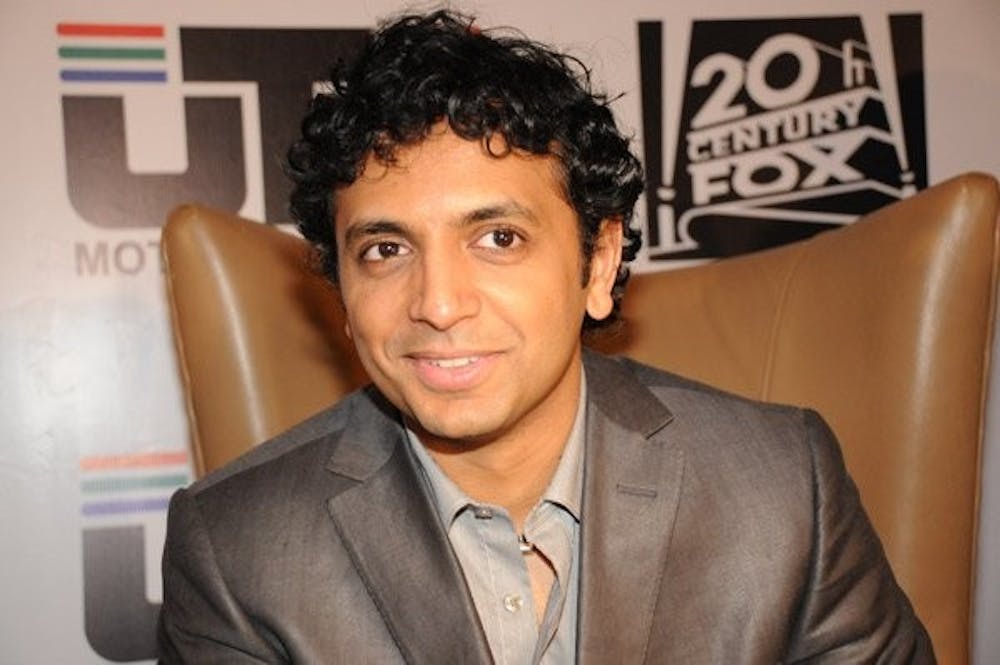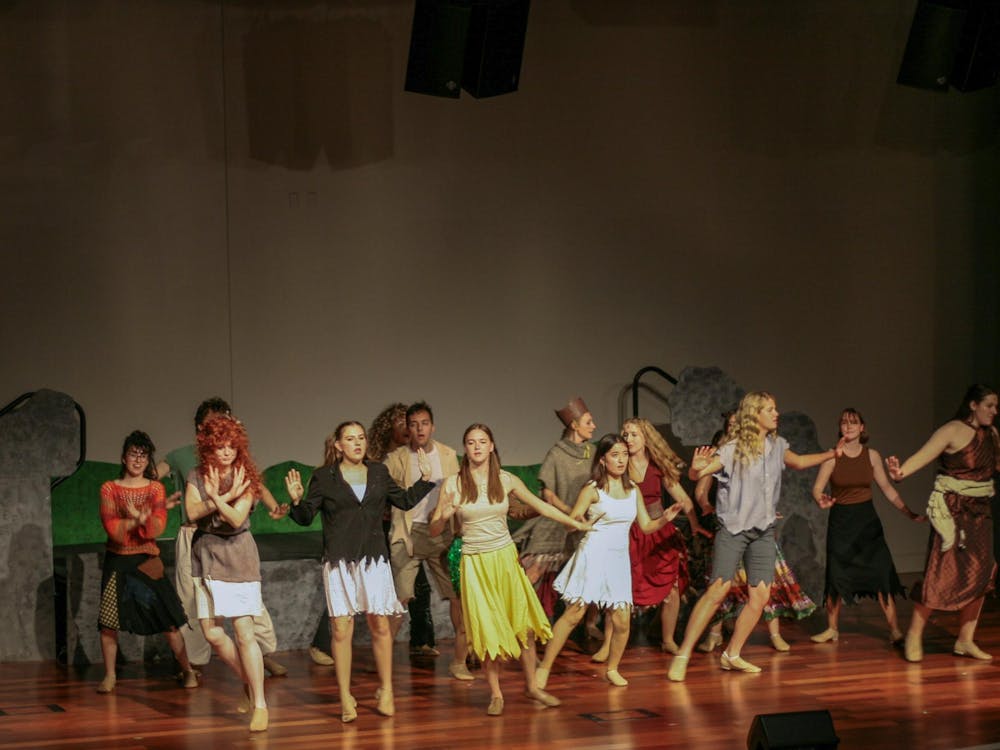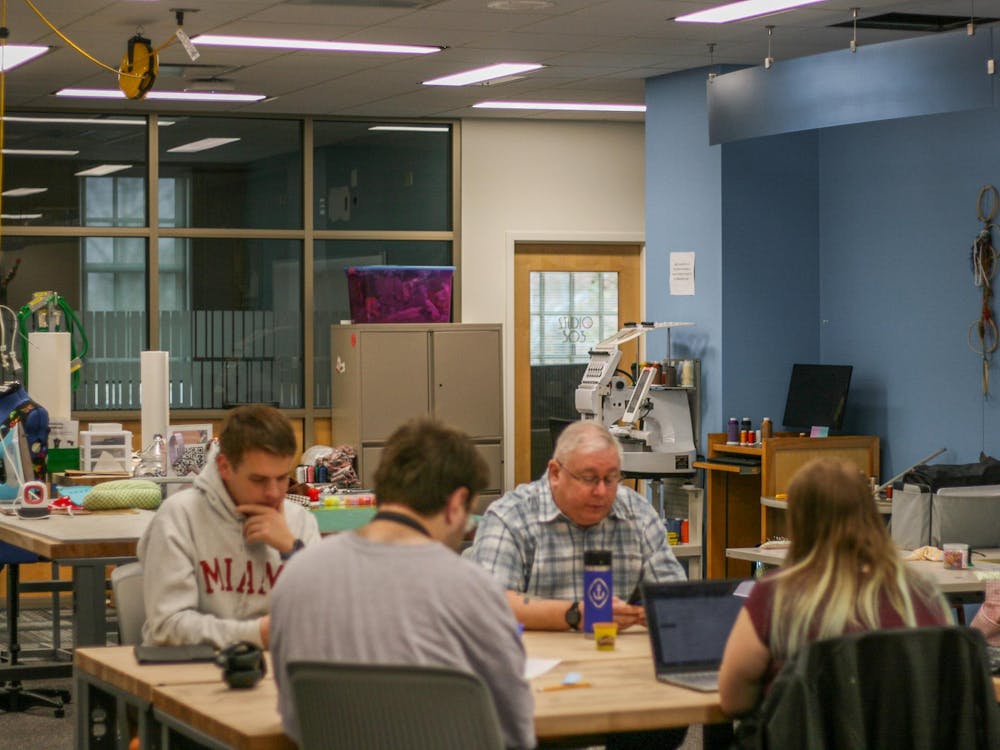From the opening titles of M. Night Shyamalan’s newest feature, “Knock at the Cabin,” it’s clear something’s awry.
Although, this should already be expected with the thriller director’s name.
An old Universal Pictures logo and drawings of apocalyptic visions are the first things to appear on screen. While the logo seems to be a misdirect (the movie takes place in modern day), the drawings hint at what’s to come for the picture.
The story starts as four strangers, Leonard, Redmond, Sabrina and Adriane played by Dave Bautista, Rupert Grint, Nikki Amuka-Bird and Abby Quinn, come to an isolated cabin in the woods. Eric, Andrew and their daughter Wen, played by Jonathan Groff, Ben Aldridge and Kristen Cui respectively, are vacationing at the house and are frightened by the visitors.
The four strangers, after tying up Eric and Andrew, propose that they were united by a common vision of the apocalypse: the same one seen in the beginning’s drawings. They tell Eric, Andrew and Wen that the three were randomly chosen, and two of them must make a decision to sacrifice the other to save humanity from ending.
It’s absurd.
But just because it’s absurd doesn’t make it bad. In fact, it does the opposite, elevating the story’s creativity, which was based on Paul Tremblay’s “The Cabin at the End of the World.”
Every time the trio says no to picking a sacrifice, Bautista’s character Leonard turns on the news and reveals that a new tragedy has struck the world. These news segments add drama to the film as they make Eric reconsider saying no to sacrificing someone, while Andrew stands strong, saying the events are only coincidence.
Religion (particularly Christianity) plays a prominent role in the film. Not only do the four visitors share similarities with the four horsemen seen in Revelations, but like the teachings of Christianity, Andrew and Eric are asked to trust the visitors based on blind faith.
The idea of selflessness also stands out during the movie. The reason the visitors ask Eric and Andrew to make a decision is to help save the lives of millions of people.
With the movie having been filmed toward the end of the COVID-19 pandemic, perhaps Shyamalan was asking viewers to consider being more selfless and to take other people’s needs into consideration.
Continuing to view the film in this light also requires an understanding of how Shyamalan creates drama through the characters’ conflicting ideologies.
Enjoy what you're reading?
Signup for our newsletter
The visitors, who are coded with religion, don’t know how to interact with Eric and Andrew’s same-sex relationship. Through these dramatic moments, Shyamalan asks the audience to put themselves into another person’s shoes and practice empathy.
Through the lens of empathy, it’s easier to understand why a person might ask for someone to give up something they feel so passionate about to help millions. It’s also easier to understand why a person would struggle to align with the beliefs of someone who looks down on their views.
Shyamalan has not always been treated kindly in the public eye. Some of his films such as “The Happening,” “After Earth” and “The Last Airbender” have been panned by critics and audiences, leaving some with a sour taste in their mouths, unable to watch anything else by him.
This rejection from audiences has led to Shyamalan self-financing his more recent movies, being able to maintain more creative control over the films. Because they are self-financed, these films have lower budgets than some of his previous movies, but Shyamalan does an excellent job of making them work, utilizing the few sets, effects and even actors he has to create great, riveting movies.
“Knock at the Cabin” is a marvelous example of this and is one of Shyamalan’s best since “Signs,” “Unbreakable” and “The Sixth Sense.”
Rating: 8/10




